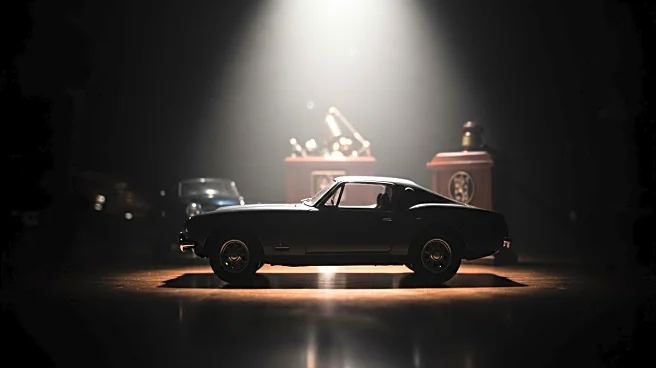What is the story about?
What's Happening?
Monterey Car Week has commenced, featuring classic car auctions by RM Sotheby's, Gooding & Co., Mecum, Bonhams, and others. This year, the auctions are expected to see a decline in sales, with only one car priced at $10 million or more, the fewest in over a decade. The average sale price has decreased to $473,000 from $477,000 last year. An estimated 1,140 classic cars will be auctioned, with sales projected between $367 million and $409 million, marking a potential third consecutive year of declining sales. Factors contributing to this trend include global uncertainty, higher interest rates, and a generational shift in collector preferences.
Why It's Important?
The decline in classic car sales reflects broader economic and generational shifts. Baby boomers, who have traditionally driven the market, are aging out, while millennials and Gen Zers prefer newer and fewer collectible cars. This generational transition is significant as it could reshape the collectible car market, impacting prices and demand for older models. Additionally, economic factors such as global instability and rising interest rates are influencing purchasing decisions, highlighting the interconnectedness of global events and luxury markets.
What's Next?
As the market adapts to these changes, auctions of newer supercars are expected to rise, driven by younger collectors. This shift may lead to increased demand for cars from the 1980s, 1990s, and 2000s, which are seen as more practical and affordable. The market will continue to evolve as wealth transfers from older to younger generations, potentially altering the landscape of collectible car sales. Auction houses and dealers may need to adjust their strategies to cater to the preferences of new collectors.
Beyond the Headlines
The generational shift in the classic car market raises questions about the future of collecting as an investment. As younger collectors prioritize usability and affordability, the traditional view of collecting as a status symbol may change. This could lead to a more diverse market, with a broader range of cars being valued for their practicality rather than their historical significance.

















